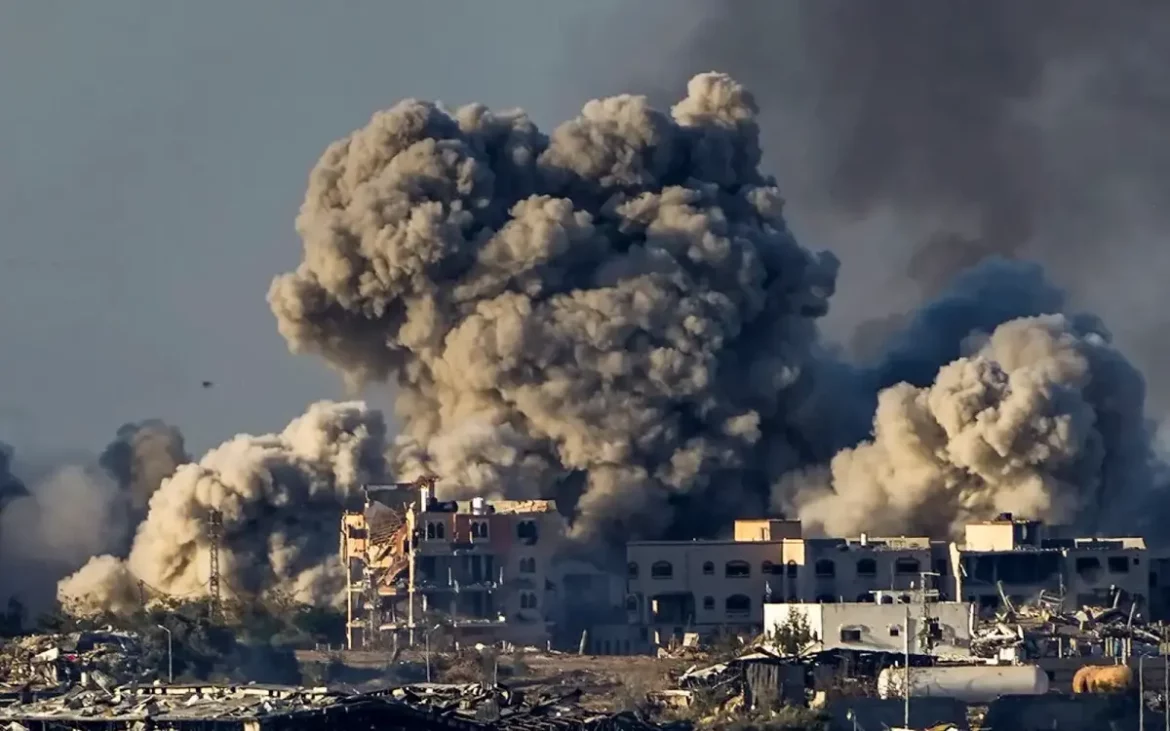Israel unleashed a fresh wave of airstrikes on the Gaza Strip early Tuesday, killing more than 400 people, after ceasefire negotiations with Hamas collapsed. The escalation has sparked fears of a return to full-scale war in the war-torn region.
Prime Minister Benjamin Netanyahu’s office stated that the military had been ordered to intensify operations against Hamas, blaming the group for refusing to release hostages and rejecting mediation efforts led by US envoy Steve Witkoff. The US administration acknowledged it had been informed about the strikes in advance.
In a statement posted on Telegram, the Israeli military confirmed that it was “conducting extensive strikes on terror targets belonging to Hamas.” Netanyahu’s office vowed that Israel would escalate its military operations, claiming Hamas was using the ceasefire to regroup and rearm—a charge the group vehemently denied.
Hamas accused Israel of deliberately reigniting the war, calling the justification for renewed attacks “false pretexts.” In a statement, it said, “The occupation’s claims that the resistance was preparing for attacks are baseless and merely an excuse to resume its bloody aggression.”
The fragile truce, which had held since January, officially expired on March 1. While both sides refrained from major violations initially, Monday’s strikes marked a decisive break. Hamas insisted it had upheld the ceasefire “until the very last moment” and accused Netanyahu of prolonging the war for political gain.
Among those killed in the strikes were two high-ranking officials from Gaza’s Interior Ministry—Maj Gen Mahmoud Abu Watfa, 58, and Maj Gen Bahjat Abu Sultan, 56. The ministry confirmed their deaths in a statement, marking a significant loss for the enclave’s security leadership.
The ceasefire, which paused the 17-month-long conflict, had led to the exchange of dozens of Israeli hostages for nearly 2,000 Palestinian detainees. However, Hamas accused Netanyahu’s government of derailing the agreement, stating, “Netanyahu and his extremist government have decided to overturn the ceasefire agreement, exposing prisoners in Gaza to an unknown fate.”
Israel’s Defense Minister, Israel Katz, warned that “the gates of hell will open in Gaza” if hostages are not released. “We will not stop fighting until all our hostages are home and all our war objectives are achieved,” he declared.
Beyond Gaza, Israel also launched airstrikes in Syria’s Deraa province, targeting military sites. Syrian state media reported two civilian deaths and 19 injuries. The Israeli army confirmed the attacks, stating that military headquarters and weapons storage facilities were struck.
Hamas criticized the United States for providing what it called “unlimited political and military support” for Israel’s renewed assault. White House press secretary Karoline Leavitt confirmed that the Trump administration had been consulted ahead of the strikes. “With its blanket support for Israel, Washington bears full responsibility for the massacres in Gaza,” Hamas said in a statement.
The international community swiftly condemned the escalation. The United Arab Emirates denounced the strikes as a violation of the January ceasefire and warned of the humanitarian crisis worsening. The UN expressed shock at the civilian casualties, with spokesman Stephane Dujarric saying, “A meaningful number of civilians have been killed.”
UN human rights chief Volker Turk said he was “horrified” by the strikes, warning that military escalation would only worsen the suffering of Palestinians in Gaza. UN Secretary-General António Guterres called for the immediate restoration of the ceasefire and the unconditional release of remaining hostages.
Regional powers also voiced their outrage. Egypt labeled the strikes a “flagrant violation” of the truce and warned of severe consequences for Middle East stability. Jordan condemned Israel’s “aggressive and barbaric bombing,” while Turkey accused Netanyahu’s government of “defying humanity” and intensifying its “genocide policy.”
Iran blamed the US for enabling the assault, with Foreign Ministry spokesman Esmaeil Baghaei calling the strikes “a continuation of genocide and ethnic cleansing” against Palestinians.
As tensions spiral, the possibility of a lasting ceasefire fades, leaving Gaza’s civilian population once again bracing for the horrors of war.

